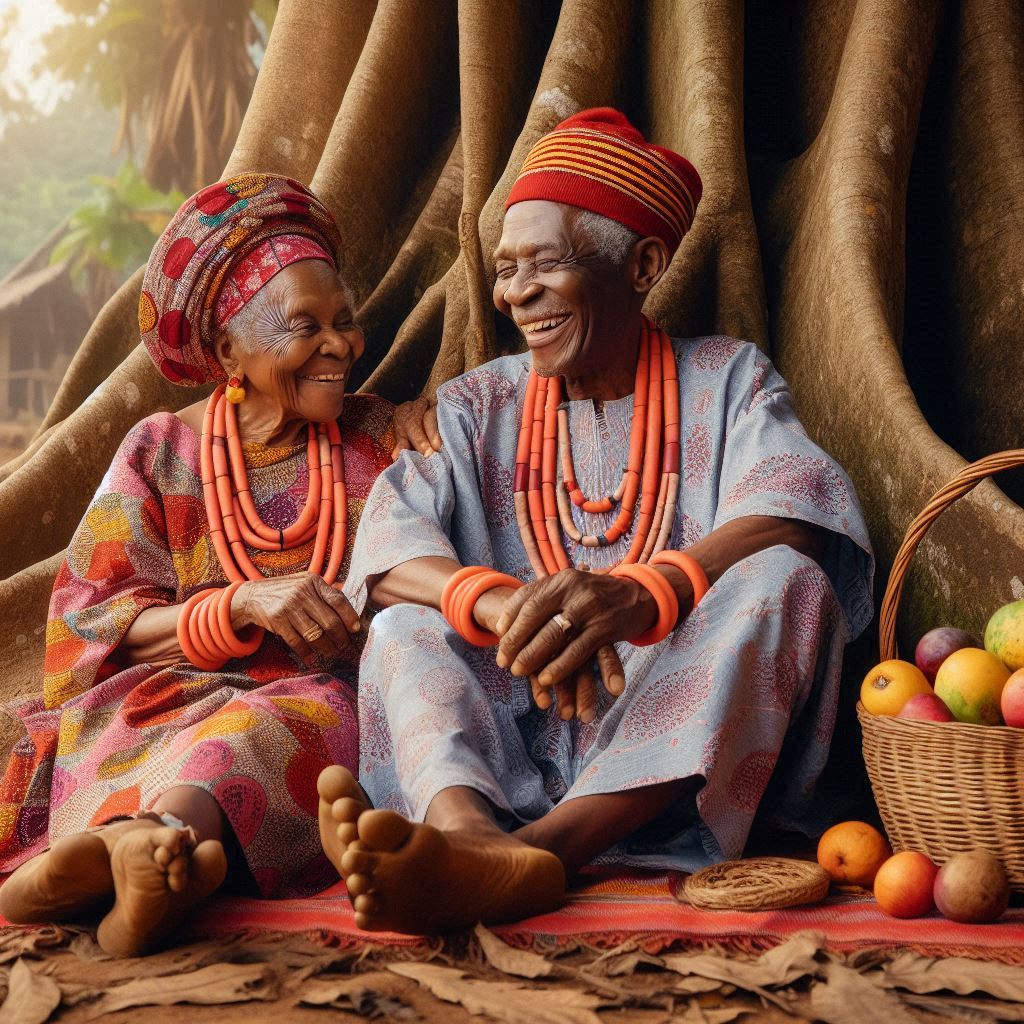Introduction
Nigeria, a nation with over 500 languages, embodies multilingualism’s rich complexity. Understanding its dynamics is crucial for societal cohesion.
Multilingualism in Nigeria
Nigeria boasts a diverse linguistic landscape, encompassing three major language families: Afro-Asiatic, Nilo-Saharan, and Niger-Congo.
Within these families, languages are further divided into numerous dialects, reflecting the nation’s cultural richness and historical diversity.
This linguistic diversity is a result of Nigeria’s complex history, including pre-colonial indigenous languages, colonial influence, and post-independence nation-building efforts.
Importance of Discussing Multilingualism
Promoting dialogue on multilingualism in Nigeria is vital for several reasons, primarily fostering national unity and inclusivity.
Firstly, acknowledging and appreciating the linguistic diversity within Nigeria helps build a sense of belonging and identity among its citizens.
Secondly, multilingualism is crucial for effective communication, both within communities and on a national scale.
By embracing multilingualism, Nigeria can harness the full potential of its diverse population, fostering innovation, creativity, and economic growth.
Moreover, discussing multilingualism encourages the preservation and revitalization of endangered languages, safeguarding cultural heritage and promoting intergenerational transmission of knowledge.
Additionally, multilingualism fosters social cohesion by promoting understanding and tolerance among different linguistic and ethnic groups.
Furthermore, in a globalized world, multilingual proficiency enhances Nigeria’s competitiveness in the international arena, facilitating diplomacy, trade, and cultural exchange.
Addressing multilingualism challenges the dominance of colonial languages and promotes the empowerment of indigenous languages, thereby advancing linguistic justice and equality.
Lastly, understanding the significance of multilingualism is essential for policymakers, educators, and other stakeholders in developing language policies and educational strategies that reflect Nigeria’s linguistic diversity.
In general, the significance of multilingualism in Nigeria cannot be overstated.
Embracing and celebrating linguistic diversity is crucial for fostering unity, promoting communication, preserving cultural heritage, and driving socioeconomic development.
By acknowledging the importance of multilingualism, Nigeria can build a more inclusive, resilient, and prosperous society for all its citizens.
Cultural diversity in Nigeria
Nigeria is a country known for its rich cultural diversity, with over 250 ethnic groups and over 500 languages spoken across the country.
Each tribe in Nigeria has its unique language, traditions, and cultural practices that contribute to the vibrant tapestry of Nigerian culture.
The various tribes and languages in Nigeria
The three largest ethnic groups in Nigeria are the Hausa-Fulani, Yoruba, and Igbo, each with its language and cultural practices.
Other prominent tribes include the Ijaw, Tiv, Kanuri, Ibibio, and Efik, to name a few, each adding to the cultural mosaic of Nigeria.
How multilingualism reflects the rich cultural heritage of Nigeria
Multilingualism in Nigeria is a reflection of the country’s diverse cultural heritage, showcasing the unique identities of different tribes.
It demonstrates the resilience and adaptability of Nigerians in embracing and preserving their linguistic and cultural traditions over generations.
Importance of preserving and promoting these languages
Preserving and promoting the various languages spoken in Nigeria is crucial for maintaining cultural diversity and heritage.
It helps to foster a sense of belonging and pride among different ethnic groups, promoting unity and harmony in a multicultural society.
In a nutshell, the significance of multilingualism in Nigeria cannot be overstated, as it is a testament to the country’s rich cultural tapestry.
By preserving and promoting these languages, Nigeria can celebrate its diversity and strengthen its cultural identity for generations to come.
Read: The Role of Psychology in Nigerian Corporate Sector
Communication and unity
Facilitating Communication Across Diverse Groups
Multilingualism in Nigeria serves as a bridge, connecting people of different linguistic backgrounds.
It enables seamless communication in a country with over 500 languages.
With this linguistic diversity, individuals can express themselves comfortably in their native tongues.
Communication barriers are broken down, fostering understanding and cooperation among diverse communities.
Fostering Unity and Understanding
Multilingualism promotes a sense of inclusivity and belonging among Nigerians.
By embracing various languages, the nation acknowledges and respects its cultural richness.
It fosters a spirit of unity as people appreciate each other’s linguistic heritage.
Through linguistic diversity, Nigerians develop empathy and tolerance towards one another.
Examples of Bridging Communication Gaps
In the marketplace, multilingualism enables traders from different regions to negotiate effectively.
In educational settings, students learn to appreciate and understand various cultural perspectives.
During governmental proceedings, interpreters ensure that every voice is heard and understood.
In social interactions, multilingualism facilitates friendships and collaborations across linguistic divides.
Embracing Linguistic Diversity for National Cohesion
Multilingualism is not merely a characteristic of Nigeria; it is its strength.
By embracing linguistic diversity, Nigeria promotes inclusivity, understanding, and unity.
Communication across diverse groups becomes smoother, fostering a sense of national identity.
As Nigerians celebrate their linguistic heritage, they pave the way for a more cohesive and prosperous future.
Each section of the blog section is crafted to highlight the importance of multilingualism in facilitating communication and unity in Nigeria.
Through examples and explanations, the significance of linguistic diversity in bridging communication gaps and fostering national cohesion is emphasized.
Read: How to Start a Private Psychology Practice in Nigeria
Business and economic benefits
In the dynamic landscape of Nigerian business, multilingualism emerges as a potent tool for expansion and success.
With over 500 languages spoken across the nation, linguistic diversity offers a unique advantage for entrepreneurs seeking to tap into diverse markets.
Expanding Business Horizons
Multilingualism facilitates effective communication with customers from various linguistic backgrounds, fostering stronger relationships and trust.
By speaking the language of their clients, businesses can tailor their marketing strategies and products to specific cultural preferences, thus increasing sales and market share.
Transform Your Career with Expert Guidance
Get personalized mentorship consulting that’s tailored to your unique path. Our expert advice is actionable and exclusive.
Get StartedNavigating the Job Market
In Nigeria’s competitive job market, proficiency in multiple languages sets candidates apart. Employers increasingly value language skills, particularly in industries such as tourism, hospitality, and international trade.
Multilingual individuals possess the flexibility to engage with diverse stakeholders, making them invaluable assets to companies aiming for global competitiveness.
Enhancing Global Trade Relations
Multilingualism plays a pivotal role in attracting foreign investors and fostering international partnerships.
Nigeria’s ability to communicate in multiple languages facilitates smoother negotiations and eliminates language barriers that may hinder business transactions.
Moreover, demonstrating linguistic proficiency signals openness and cultural awareness, instilling confidence in potential investors.
Improving Customer Engagement
For businesses operating in Nigeria, multilingualism is essential for effective customer service. Being able to converse with clients in their preferred language creates a more personalized experience, leading to higher customer satisfaction and loyalty.
Furthermore, multilingual employees can resolve issues efficiently, contributing to positive brand perception and long-term success.
Bridging Cultural Divides
In a diverse country like Nigeria, multilingualism promotes cultural understanding and inclusivity.
By speaking the languages of different ethnic groups, businesses demonstrate respect for local customs and traditions, fostering harmonious relations with communities.
This cultural sensitivity not only strengthens social cohesion but also enhances the brand’s reputation as a responsible corporate citizen.
Empowering Entrepreneurship
Multilingualism empowers Nigerian entrepreneurs to explore untapped markets both domestically and internationally.
With the ability to communicate across linguistic boundaries, small businesses can reach new demographics and expand their customer base.
This opens up opportunities for growth and innovation, driving economic development and prosperity.
In review, multilingualism is a valuable asset for businesses operating in Nigeria.
By embracing linguistic diversity, companies can unlock new opportunities for growth, improve their competitive edge, and contribute to the nation’s economic development.
In a globalized world, the ability to communicate effectively across languages is not just advantageous but essential for success.
Read: Bridging the Gap in Nigerian Mental Health Services

Discover More: Popular Nigerian Comedy Shows and Comedians
Education and cognitive benefits
Multilingualism isn’t just about speaking multiple languages; it’s a cognitive superpower. It enhances brain function, boosts problem-solving skills, and improves memory.
Enhanced Cognitive Abilities
Speaking multiple languages exercises the brain. It strengthens executive function, the brain’s command center for decision-making and problem-solving.
Flexible Thinking
Multilingual individuals possess a remarkable ability to think flexibly. They can switch between languages effortlessly, adapting to different contexts and perspectives.
Improved Academic Performance
Research shows that multilingualism positively correlates with academic success. Multilingual children often outperform their monolingual peers in standardized tests and academic achievement.
Cognitive Development in Children
Children exposed to multiple languages from a young age show advanced cognitive development. Their brains become more adaptable, creative, and adept at processing information.
Enhanced Communication Skills
Multilingual individuals have superior communication skills. They can navigate diverse cultural settings with ease, fostering empathy and understanding across linguistic boundaries.
Strategies for Promoting Multilingual Education
- Early Exposure: Introduce multiple languages in early childhood education. Start with immersive experiences and interactive activities.
- Curriculum Integration: Embed multilingualism into the national curriculum. Offer language courses alongside core subjects to encourage linguistic diversity.
- Teacher Training: Provide professional development for educators on multilingual teaching strategies. Equip them with tools to support language acquisition and cultural sensitivity.
- Community Engagement: Foster partnerships between schools, families, and communities. Create opportunities for language practice and cultural exchange outside the classroom.
- Technology Integration: Utilize technology to enhance multilingual learning. Develop educational apps, online resources, and interactive platforms for language acquisition.
Embracing Multilingualism for a Brighter Future
In fact, Multilingualism is a gateway to cognitive enrichment and academic excellence. By promoting multilingual education, Nigeria can unlock the full potential of its diverse linguistic heritage.
Let’s empower our children to thrive in a globalized world by embracing the power of language diversity.
Read: The Future of Psychology Education in Nigeria
Find Out More: Textile and Fashion Design in Nigerian Art
Preservation of Indigenous Languages in Nigeria
Preserving indigenous languages in Nigeria is crucial for cultural identity and societal cohesion. Languages are not just communication tools; they embody the heritage, values, and unique perspectives of a community.
Importance of Preserving Indigenous Languages
Indigenous languages serve as vehicles for transmitting traditional knowledge, folklore, and history from one generation to the next. They provide a sense of belonging and foster cultural pride among ethnic groups.
Furthermore, linguistic diversity enriches the fabric of Nigerian society, offering different linguistic perspectives that contribute to creativity, problem-solving, and innovation.
It enhances intercultural understanding and promotes tolerance and respect for diversity.
Threats to the Extinction of Some Minority Languages
Despite their significance, many indigenous languages in Nigeria are facing the threat of extinction.
The dominance of major languages like Hausa, Yoruba, and Igbo in education, media, and governance marginalizes minority languages, leading to their decline.
Globalization, urbanization, and the prevalence of digital media further exacerbate the situation. Younger generations are increasingly adopting dominant languages, neglecting their mother tongues.
Without concerted efforts, these minority languages risk disappearing entirely, taking with them invaluable cultural heritage.
Efforts to Revive and Preserve Endangered Languages
Fortunately, there are initiatives underway to reverse this trend and revitalize endangered languages.
One such effort is the establishment of language preservation programs and initiatives by both governmental and non-governmental organizations.
These programs focus on documenting endangered languages, developing educational materials, and promoting language use in schools and communities.
They also involve intergenerational language transmission, encouraging parents to speak their native languages to their children.
Moreover, technology plays a crucial role in language preservation efforts.
Digital platforms and mobile applications are being utilized to create language learning resources, dictionaries, and interactive materials accessible to speakers of endangered languages.
Collaboration between linguists, educators, community leaders, and policymakers is essential for the success of these initiatives.
By raising awareness about the importance of linguistic diversity and advocating for the inclusion of indigenous languages in formal education and public discourse, stakeholders can foster a renewed appreciation for Nigeria’s rich linguistic heritage.
Essentially, the preservation of indigenous languages in Nigeria is vital for maintaining cultural diversity, promoting intercultural understanding, and preserving invaluable cultural heritage.
Efforts to revive and preserve endangered languages are crucial for ensuring linguistic justice and fostering inclusive development in the country.
Discover More: How to Create Unique Fashion Designs in Nigeria
Explore Further: Top Nigerian Universities Offering Language Programs
Conclusion
Recap of the Significance of Multilingualism
Multilingualism in Nigeria isn’t just a linguistic reality but a cultural treasure. It embodies the nation’s rich tapestry of traditions, histories, and identities. With over 500 languages spoken, it’s a testament to the country’s diversity.
Linguistic Diversity: Nigeria’s Strength
The significance of multilingualism extends far beyond mere communication. It fosters inclusivity, fostering a sense of belonging among diverse ethnic groups.
This linguistic diversity is a source of resilience, enabling communities to preserve their unique heritage amidst globalization.
Promoting and Celebrating Linguistic Diversity
Embracing multilingualism isn’t just about acknowledging differences; it’s about celebrating them. Every language represents a unique worldview, offering insights into different cultural perspectives.
By promoting linguistic diversity, we enrich our collective understanding and appreciation of each other’s cultures.
Preserving Cultural Heritage
Language is the bedrock of culture. Preserving Nigeria’s linguistic diversity is essential for safeguarding its rich cultural heritage. Each language carries with it centuries of traditions, stories, and knowledge.
By nurturing these languages, we preserve our collective memory and ensure that future generations inherit a vibrant cultural legacy.
Call to Action: Supporting Multilingualism Efforts
The responsibility of preserving Nigeria’s linguistic diversity falls upon both individuals and the government. As individuals, we can start by valuing and using our native languages in daily life.
This includes speaking, writing, and promoting our languages within our communities.
Investment in Education
Education plays a crucial role in promoting multilingualism. The government should invest in bilingual and multilingual education programs to ensure that all Nigerians have access to quality education in their mother tongues.
This not only enhances learning outcomes but also strengthens cultural identity and pride.
Creating Language Policies
The government should also formulate language policies that recognize and protect the rights of linguistic minorities.
These policies should promote the use of indigenous languages in official settings, such as schools, government institutions, and media platforms. By giving equal status to all languages, we foster a more inclusive society.
Fostering Language Revitalization Efforts
Language revitalization efforts are essential for preserving endangered languages and revitalizing those at risk of extinction.
This includes documenting oral traditions, creating language learning materials, and supporting community-led initiatives to revive languages.
By empowering communities to reclaim their linguistic heritage, we ensure the survival of Nigeria’s linguistic diversity for generations to come.
In summary, the significance of multilingualism in Nigeria cannot be overstated. It is a cornerstone of our cultural identity and a source of strength and resilience.
By promoting and celebrating linguistic diversity, we not only preserve our rich heritage but also build a more inclusive and prosperous nation.
It’s time for individuals and the government to come together and invest in efforts to support and preserve Nigeria’s linguistic mosaic. Together, we can create a future where every language is valued, and every voice is heard.




